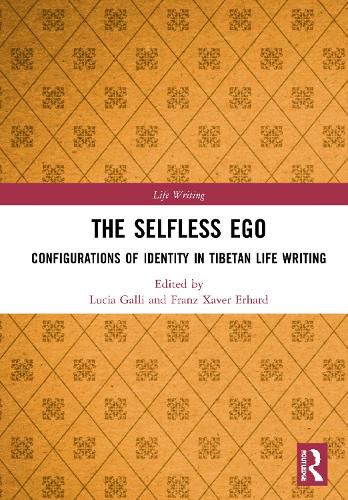Readings Newsletter
Become a Readings Member to make your shopping experience even easier.
Sign in or sign up for free!
You’re not far away from qualifying for FREE standard shipping within Australia
You’ve qualified for FREE standard shipping within Australia
The cart is loading…






The essays collected in The Selfless Ego propose an innovative approach to one of the most fascinating aspects of Tibetan literature: life writing. Departing from past schemes of interpretation, this book addresses issues of literary theory and identity construction, eluding the strictures imposed by the adoption of the hagiographical master narrative as synonymous with the genre.
The book is divided into two parts. Ideally conceived as an ‘introduction’ to traditional forms of life writing as expressed in Buddhist milieus, Part I. Memory and Imagination in Tibetan Hagiographical Writing centres on the inner tensions between literary convention and self-expression that permeate indigenous hagiographies, mystical songs, records of teachings, and autobiographies. Part II: Conjuring Tibetan Lives explores the most unconventional traits of the genre, sifting through the narrative configuration of Tibetan biographical writings as ‘liberation stories’ to unearth those fragments of life that compose an individual’s multifaceted existence.
This volume is the first to approach Tibetan life writing from a literary and narratological perspective, encompassing a wide range of disciplines, themes, media, and historical periods, and thus opening new and vibrant areas of research to future scholarship across the Humanities.
The chapters in this book were originally published as two special issues of Life Writing.
$9.00 standard shipping within Australia
FREE standard shipping within Australia for orders over $100.00
Express & International shipping calculated at checkout
The essays collected in The Selfless Ego propose an innovative approach to one of the most fascinating aspects of Tibetan literature: life writing. Departing from past schemes of interpretation, this book addresses issues of literary theory and identity construction, eluding the strictures imposed by the adoption of the hagiographical master narrative as synonymous with the genre.
The book is divided into two parts. Ideally conceived as an ‘introduction’ to traditional forms of life writing as expressed in Buddhist milieus, Part I. Memory and Imagination in Tibetan Hagiographical Writing centres on the inner tensions between literary convention and self-expression that permeate indigenous hagiographies, mystical songs, records of teachings, and autobiographies. Part II: Conjuring Tibetan Lives explores the most unconventional traits of the genre, sifting through the narrative configuration of Tibetan biographical writings as ‘liberation stories’ to unearth those fragments of life that compose an individual’s multifaceted existence.
This volume is the first to approach Tibetan life writing from a literary and narratological perspective, encompassing a wide range of disciplines, themes, media, and historical periods, and thus opening new and vibrant areas of research to future scholarship across the Humanities.
The chapters in this book were originally published as two special issues of Life Writing.